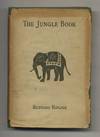

Stock Photo: Cover May Be Different
Changing Channels: Television and the Struggle for Power in Russia
by Mickiewicz, Ellen Propper
- Used
- very good
- Hardcover
- Signed
- first
- Condition
- Very Good/Fine
- ISBN 10
- 0195101634
- ISBN 13
- 9780195101638
- Seller
-
Santa Barbara, California, United States
Payment Methods Accepted
About This Item
Oxford and New York: Oxford University Press, 1997. xiii, 340 pages, illustrations; 25 cm. PRESENTATION COPY. Signed and warmly inscribed by the author. Fine DJ. A fine copy of the first printing. "At 7:20 pm on October 3, 1993, a nervous and shaky anchor broke into coverage of a soccer match to tell Russian viewers that their state television was shutting down. In the opening salvos of the parliamentary revolt against Boris Yeltsin's government, a mob had besieged the station's headquarters. A man had just been killed in front of the news director. Moments later, screens all across Russia went blank, leaving audiences in the dark. But in less than an hour, Russia's second state channel went on the air. Millions watched as Sergei Torchinsky anchored thirteen straight hours of coverage, often with the sound of shooting clearly audible in the background. Streams of politicians, trade union leaders, writers, television personalities, and other well-known figures braved gunfire to reach Channel Two's makeshift studios and speak directly to the nation. In one stunning moment, a famous actress extemporaneously pleaded with viewers not to return to the horrors of Stalinism. Boris Yeltsin, who had been glued to his television set like everyone else, later recalled, 'For the rest of my life I will remember the anxious but resolute and courageous expression of Liya Akhedzhakova. . . her hoarse, cracking voice remains in my memory.' In that time of crisis, television bound the nation together, a continuing emblem of legitimate authority which lent an image of stability and credibility to Yeltsin's besieged government. "Television saved Russia," the Russian president said. Changing Channels vividly recreates this exciting time, as television both helped and hindered the Russian nation's struggle to create a new democracy. From the moribund, state-controlled television broadcasts at the end of the Soviet Union, through Mikhail Gorbachev's glasnost, up to Yeltsin's victory in the most recent Russian presidential elections of 1996, Mickiewicz charts the omnipresent role of television, drawing on interviews, public opinion surveys, research, and the television programming itself. Analyzing the rise of political advertising (sometimes with controversial US participation), the birth of journalists as opinionated television personalities, and the changing news coverage of coups, elections, and wars, she shows both how the gradual development of private, independent stations has begun to make real pluralism possible and how the authoritarian legacy of the Soviet state structure continues to affect Russian television even today. With television in 97% of all Russian households, and the nightly news watched by a viewership matching that for the Super Bowl in the US, the struggle for control over television became the struggle for control over the nation. Mickiewicz illuminates the efforts of those both in and out of power to control the media. Behind the momentous political changes are the stories of the men and women who chose to resist, test, or submit to the system. Mickiewicz offers brilliant sketches of these individuals: Yegor Ligachev, Gorbachev's second in command, a man of strongly held opinions who, in retirement, still orated loudly, even over tea; Boris Yeltsin, having not even put on his shirt yet, watching the early morning coverage of the attempted coup against Gorbachev; or the new breed of Russian journalists covering the war in Chechnya with footage of bombed out streets and charred corpses for privately owned NTV, despite continuing government intimidation. In vivid interviews, all the key players, including Gorbachev himself, offered Mickiewicz their unique insights and frank personal commentary. Drawing on these interviews and on her extensive research on the interactions of politics, economics, and society, Mickiewicz presents a rich and authoritative analysis of television in Russia. In many ways, Mickiewicz writes, no other country in the world. SIGNED. 1st. Hardcover. Very Good/Fine. 8vo. Collectible.
Reviews
(Log in or Create an Account first!)
Details
- Bookseller
- LEFT COAST BOOKS
(US)
- Bookseller's Inventory #
- 114215
- Title
- Changing Channels: Television and the Struggle for Power in Russia
- Author
- Mickiewicz, Ellen Propper
- Format/Binding
- Hardcover
- Book Condition
- Used - Very Good
- Jacket Condition
- Fine
- Edition
- 1st
- ISBN 10
- 0195101634
- ISBN 13
- 9780195101638
- Publisher
- Oxford University Press
- Place of Publication
- Oxford and New York
- Date Published
- 1997
- Size
- 8vo
- Keywords
- COLLECTIBLE
Terms of Sale
LEFT COAST BOOKS
30 day return guarantee, with full refund including original shipping costs for up to 30 days after delivery if an item arrives misdescribed or damaged.
About the Seller
LEFT COAST BOOKS
Biblio member since 2016
Santa Barbara, California
About LEFT COAST BOOKS
Established in Santa Barbara, California, in 2004, Left Coast Books specializes in ART BOOKS, offering thousands of titles on painting, sculpture, graphic arts, architecture, design, photography, film, video, and performance art. We also sell classics, literature, history, and a broad variety of useful academic books.
Glossary
Some terminology that may be used in this description includes:
- Inscribed
- When a book is described as being inscribed, it indicates that a short note written by the author or a previous owner has been...
- Second State
- used in book collecting to refer to a first edition, but after some change has been made in the printing, such as a correction,...
- New
- A new book is a book previously not circulated to a buyer. Although a new book is typically free of any faults or defects, "new"...
- Fine
- A book in fine condition exhibits no flaws. A fine condition book closely approaches As New condition, but may lack the...

